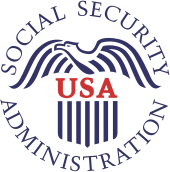Foster Care Independence Act
1882, enacted December 14, 1999) aims to assist youth aging out of foster care in the United States in obtaining and maintaining independent living skills.
States are encouraged to create programs that support youth by addressing finances, housing, health, education, and employment.
[8] Foster youth are more likely to have substance abuse issues, become parents soon after aging out of care, or end up incarcerated.
More than half the study participants reported clinical levels of mental illness, compared to less than a quarter of the general population.
The first policy impacting youth aging out of the foster system was the Federal Independent Living Initiative of 1986.
Proponents of ASFA claimed that before the law was passed, the lack of such legislation was the reason it was common for children to languish in care for years with no permanent living situation identified.
In conjunction with the passage of the Adoption and Safe Families Act, the National Foster Care Awareness Project as created.
The purpose of the Foster Care Independence Act is to provide states with flexible funding that will enable children likely to "age out" of foster care at age 18 to obtain employment, continue their education, accept personal responsibility, and prepare for the transition from adolescence to adulthood.
[3] Additional funding promotes interactions with mentors and dedicated adults to provide personal and emotional support to foster youth.
[3] The Act requires that states receiving funds develop outcome measures to assess the performance of independent living programs.
States must measure data that includes educational attainment, high school graduation rates, employment, homelessness, non-marital childbirth, and incarceration.
States must report data regarding the success of independent living program to Congress, or be subject to penalties for noncompliance.
The Act also contains provisions authorizing a study to determine reasons why family farmers are denied SSI benefits.
The following are summary descriptions of the Social Security Administration (SSA) provisions:[3] The Foster Care Independence Act also establishes a new title VIII of the Social Security Act that entitles certain World War II veterans to a monthly SSI benefit.


